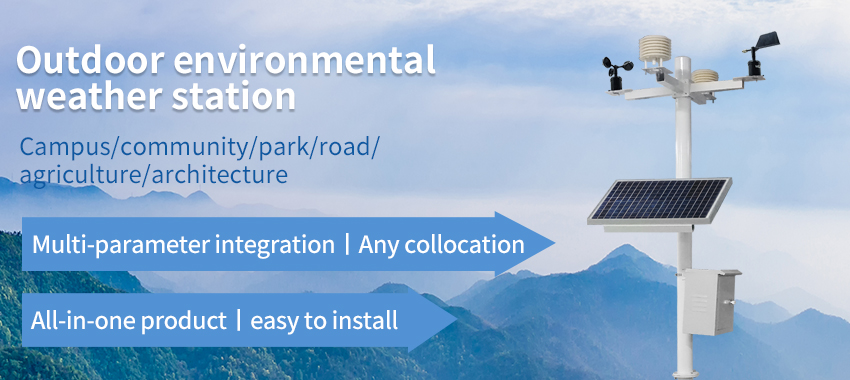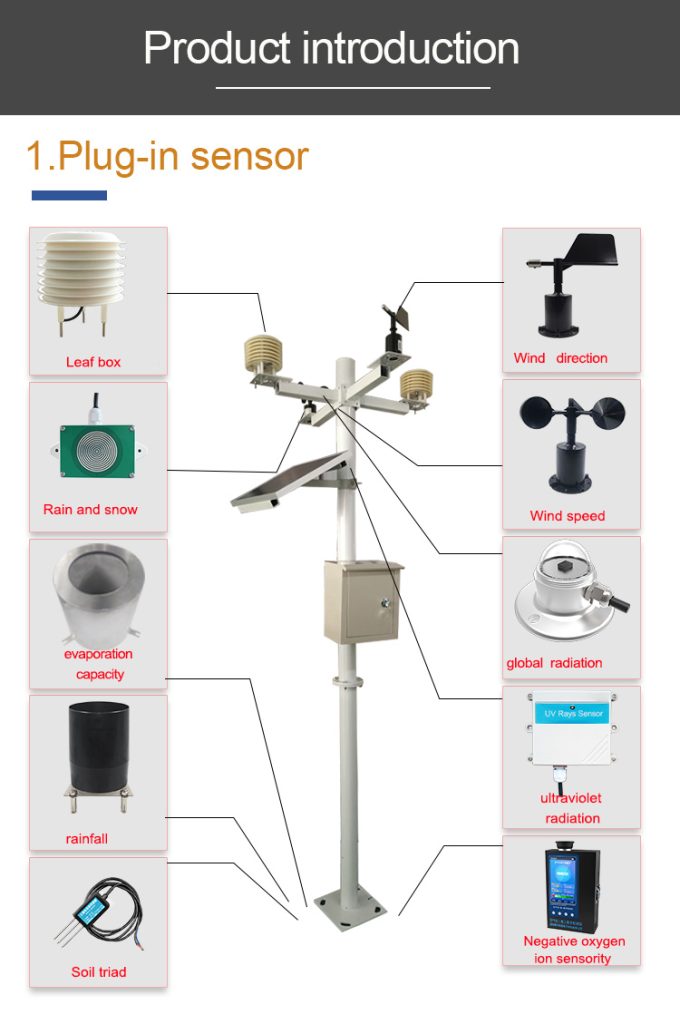Weather Station
Weather station are essential to collecting and analyzing climate data. They provide critical information that helps people make informed decisions about their daily lives, businesses, agriculture, transportation, and emergency response. The accuracy of the data collected by weather stations is vital as even minor variations can have significant implications on the environment and human safety. In this article, we will discuss the importance of accurate climate data collected by weather stations.

The importance of meteorological data
Climate Prediction
One of the primary uses of weather stations is to collect data that helps predict the weather and climate patterns. Accurate data enables meteorologists to create short-term and long-term forecasts with greater precision. They allow farmers to prepare for droughts or floods, construction workers to plan around the weather, airlines to determine flight availability and schedules, and emergency responders to anticipate potential natural disasters. Weather station data is also critical in understanding the seasonal changes and long-term climate trends that impact various ecosystems and wildlife.

Public Safety
Accurate data from weather stations plays a crucial role in public safety. Extreme weather events such as hurricanes, tornadoes, blizzards, and heatwaves can cause widespread damage, injuries, and fatalities. Access to real-time and reliable data allows emergency management teams to prepare for potential disasters and respond quickly when they occur. It also assists government officials and other organizations in informing and warning the public about approaching weather hazards.
Agriculture
Agriculture is heavily dependent on weather conditions for crop productivity in various crops such as wheat, corn, soybean, and cotton. Farmers use weather station data to keep track of temperature, moisture content, rainfall amounts, and wind speed. This information helps them determine the best times to plant, irrigate, harvest, and sell their crops. By using the right weather station and complementing it with soil tests and historical data, farmers can optimize the timing of their farming practices and minimize risks due to weather events.

Energy
Weather conditions are a critical factor in energy production and consumption, influencing everything from power generation and transmission to fuel demand and supply. Accurate weather station data can help energy companies better plan for seasonal changes in demand, adjust their renewable energy sources to the weather, and forecast the availability of critical resources like oil and natural gas. It also supports efforts to reduce energy consumption and greenhouse gas emissions by optimizing energy storage and management systems.
Transportation
The transportation sector relies heavily on reliable weather station data. Weather can impact aviation, ground transportation, and water travel, leading to flight cancellations, train delays, traffic congestion, and hazardous road conditions. Having timely and accurate weather information enables transportation agencies to make informed decisions about route planning, pilot training, operational processes, and safety protocols, ultimately making the transportation system more efficient, safe and cost-effective.
Aviation
Weather station data is particularly critical for aviation, where small variations in climate conditions can have significant impacts on flight safety. Airports depend on accurate weather forecasts to anticipate and manage potential delays, identify potential turbulence or crosswinds on runways, and detect other hazardous conditions, including thunderstorms. Flight dispatchers use real-time data from weather stations to track and reroute planes as necessary, ensuring passengers’ safety.
Conclusion
Accurate climate data collected by weather stations is essential for many industries and sectors. It helps predict weather patterns, enhance public safety, optimize agriculture practices, improve energy production and consumption, strengthen transportation systems, and ensure aviation safety. As the significance of climate change becomes increasingly evident, accurate and reliable weather data will continue to be an indispensable tool in mitigating and adapting to its effects.